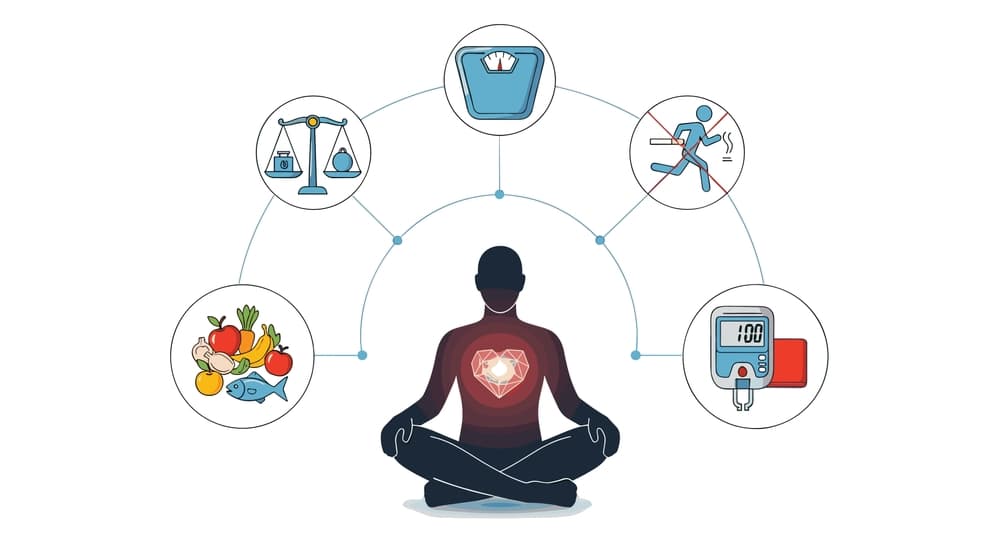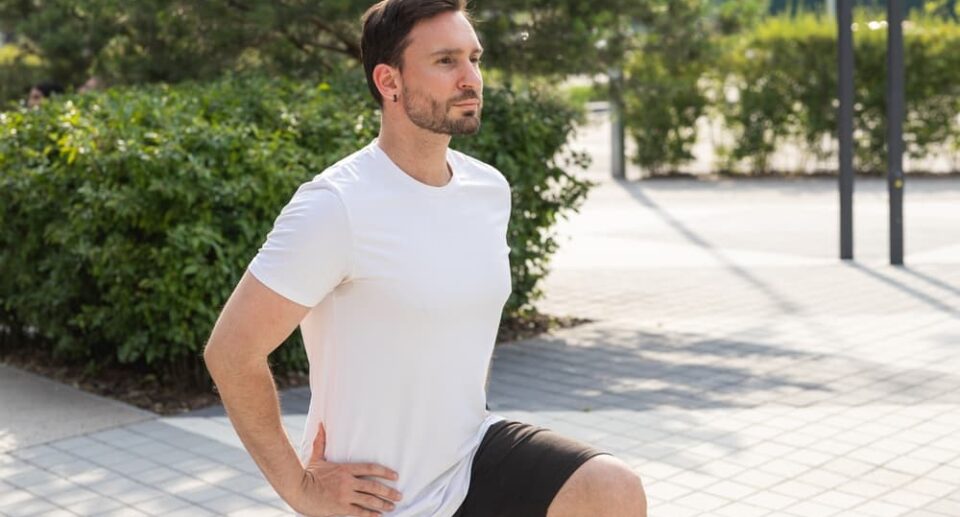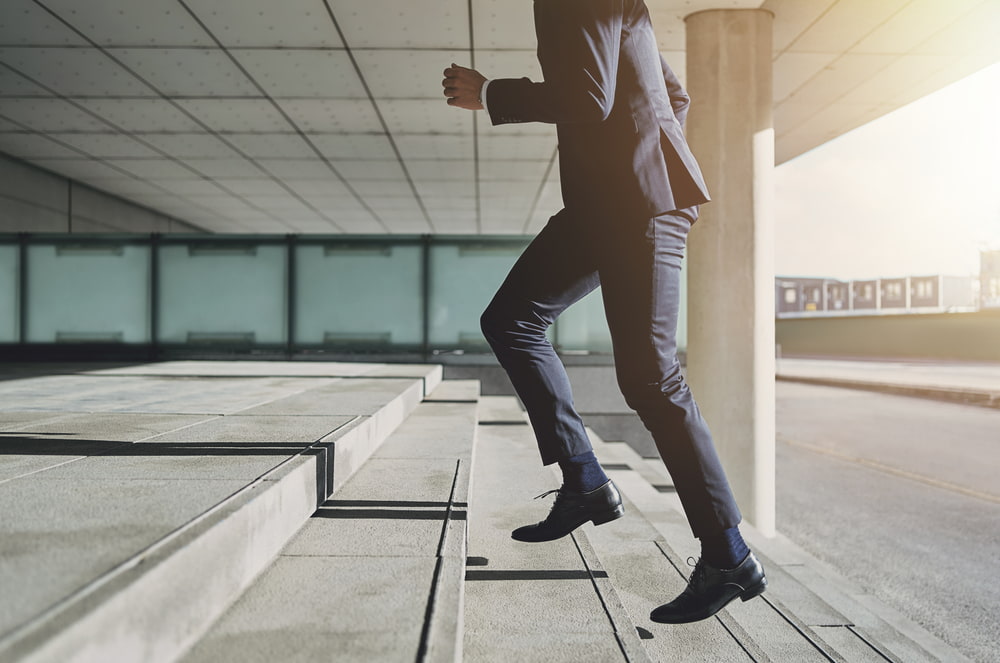How to fix sleep problems without medication
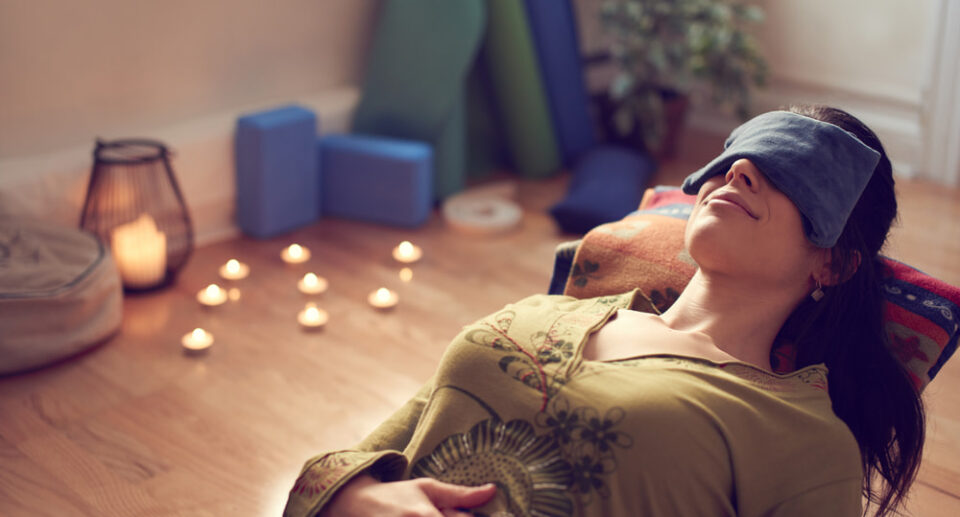

How to fix sleep problems without medication is a topic of discussion for many people now. Our natural sleep problems are caused by daily work pressure, excessive use of sunscreen, mental stress, and worry. This thing has a profound impact on our lives and work. And while looking for a solution, many people think about sleeping pills, but they can have side effects.
We will know how to eliminate sleep problems naturally without medication, what lifestyle changes or routines help improve sleep quality, and how some simple habits can make your sleep deeper and more restful.
Sleep hygiene
Sleep hygiene, also known as ‘Sleep Hygiene’ in English, is a set of habits and environmental rules that help improve the quality and duration of sleep. This is the first and most crucial step in solving sleep problems without medication.
You can elaborate on the following topics related to sleep hygiene for your article
Routine and schedule
Maintain a regular schedule: It is essential to go to bed and wake up at the same time every day, even on weekends or holidays. This regulates your body’s internal clock.
Control daytime naps: If you need to nap during the day, limit it to 20-30 minutes and avoid naps after noon. Naps that are too long or too late in the evening can make it difficult to fall asleep at night.
Sleep environment
Cool, dark, and quiet: Make your bedroom a place that has these three characteristics.
Cool: A temperature of 15.6°C–19.4°C is ideal for sleeping, as this cool environment helps the body relax and induce deep sleep.
Dark: Block out all light in the room using blackout curtains or an eye mask. Light inhibits the production of melatonin (the sleep hormone).
Quiet: You can use earplugs or a white noise machine to reduce outside noise.
Limit bed use: Train your brain to associate your bed only with sleep and intimate moments. Avoid working, watching TV, or eating in bed.
Pre-bed activities
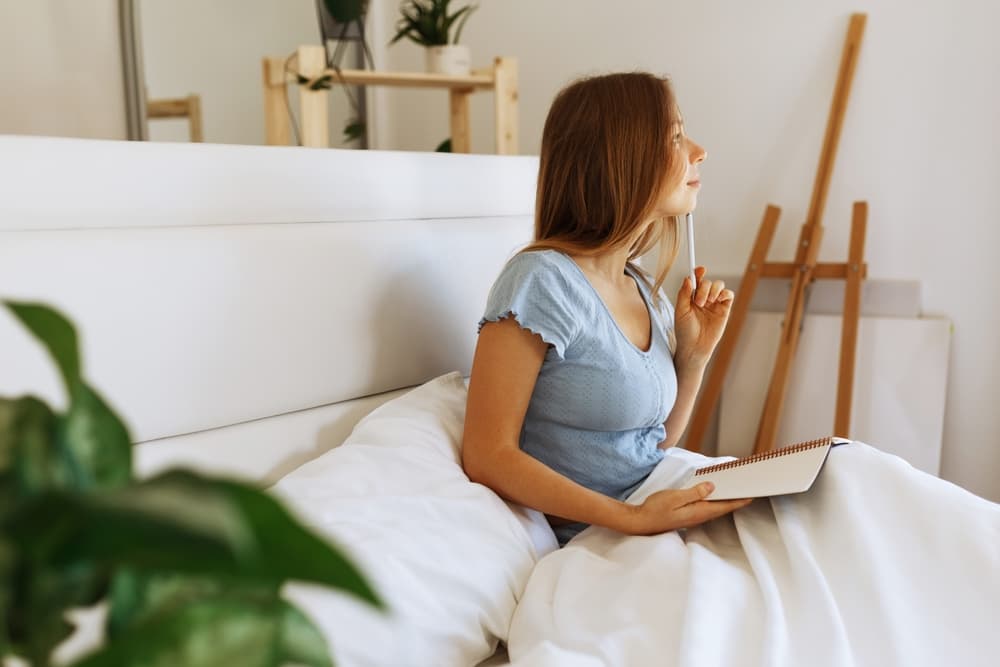

Avoid screen time: Stay away from mobile phones, laptops, tablets, and TVs at least 1 hour before bed. The blue light from these devices suppresses melatonin secretion, which makes it difficult to fall asleep.
Create a relaxing routine: Create a specific routine to calm your body and mind before going to bed, such as:
Reading a light book.
Taking a warm bath.
Listening to soothing music or meditating.
Practice deep breathing.
Food and drinks
Avoid caffeine and nicotine: Avoid consuming caffeine (tea, coffee, soda) and nicotine after noon or in the evening. These stimulants can disrupt your sleep.
Avoid alcohol: Although alcohol may make you sleepy initially, it can wake you up in the middle of the night and reduce the depth of your sleep.
No heavy meals late: Avoid eating heavy or spicy meals 2-3 hours before bedtime, as digestive problems can disrupt sleep.
Natural Ways to Improve Sleep Quality
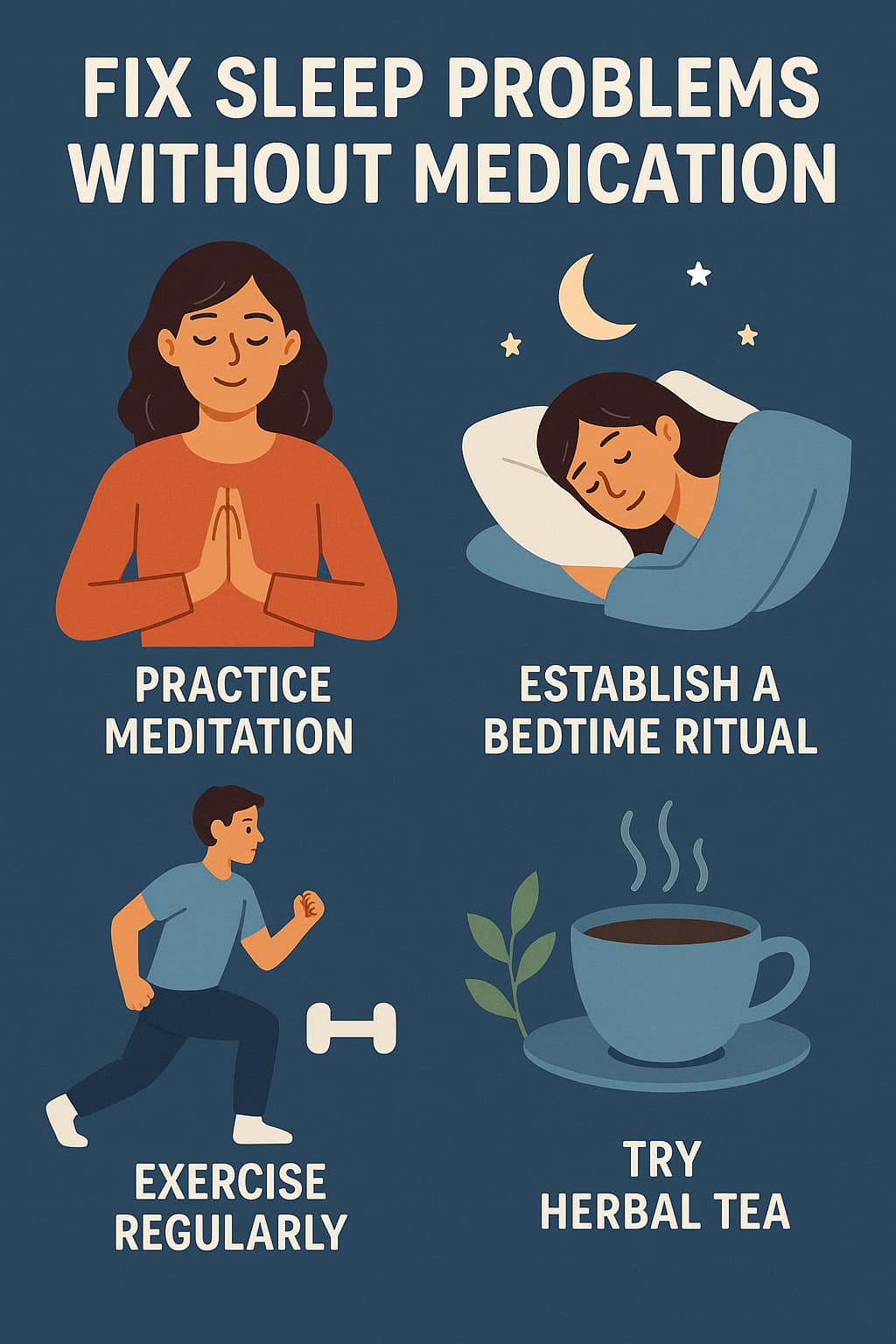

Tips to Calm and Relax the Mind
Calming the mind before bed can make the process of falling asleep easier.
Meditation and Mindfulness
Practicing meditation for a few minutes every day can reduce anxiety and stress.
‘Sleep meditation’ or ‘guided meditation’ can be used in particular, which can help guide the mind towards sleep.
Breathing exercises
4-7-8 technique: This is an effective way to calm the mind quickly. Inhale through your nose for 4 seconds, hold it for 7 seconds, and exhale slowly through your mouth for 8 seconds. Repeat this several times.
Slow and deep breathing calms the nervous system.
Progressive Muscle Relaxation
First tense and then quickly relax different muscle groups of the body (such as legs, arms, and shoulders). This helps to remove accumulated tension in the body.
Learn More: How to calm your mind before bedtime
Proper Food and Drink
There are certain foods and drinks that help improve sleep naturally.
Melatonin-rich foods: Melatonin is a natural hormone that regulates sleep. Melatonin-rich foods (such as tart cherries or tart cherry juice, walnuts, pistachios, eggs) can be consumed as light snacks in the evening.
Tryptophan-rich foods: This amino acid helps in the production of serotonin and melatonin. Examples of tryptophan-rich foods: milk, cheese, chicken/turkey, pumpkin seeds.
Magnesium: This is a mineral that helps in relaxing muscles and calming the nervous system. Include magnesium-rich foods (such as spinach, almonds, bananas, and dark chocolate) in your diet.
Herbal teas: Drink caffeine-free teas like chamomile, passion flower, and lemon balm tea. They contain relaxing properties.
Fluid control at night: While it is essential to drink enough water throughout the day, avoid drinking excess water or other beverages close to bedtime to avoid waking up to urinate in the middle of the night.
Daily habits and natural light
Your daytime habits determine the quality of your nighttime sleep.
Exposure to sunlight: Get at least 15-30 minutes of natural light in the early morning. This helps set your body’s ‘circadian rhythm’ correctly, so that you fall asleep at the right time at night.
Exercise: Do at least 20-30 minutes of moderate physical activity every day. This helps increase the depth of sleep. However, intense exercise should be completed 3-4 hours before bedtime, as it stimulates the body.
Regular physical activity: Yoga, tai chi, or light stretching helps keep your body and mind calm.
The central concept of Cognitive Behavioral Therapy for Insomnia (CBT-I)
Cognitive component
The cognitive component of cognitive behavioral therapy (CBT-I) in the treatment of insomnia works directly on our thoughts and beliefs. The main reason for this is the wrong and negative thoughts that arise in the patient about sleep problems.
Patients often think that I will not be able to sleep tonight, and if I do not sleep at night, then everything will be difficult tomorrow. Such negative thoughts create mental stress and anxiety that make the process of falling asleep more difficult.
In the cognitive part of CBT-I, the patient is taught how to identify these irrational thoughts and replace them with more realistic and positive thoughts. As a result, pre-sleep anxiety is reduced, and the mind is calm, which is essential for creating a natural and healthy sleep environment. This creates a psychological foundation for solving long-term sleep problems.
According to the Sleep Foundation, CBT-I helps retrain your brain to sleep naturally without medication.
Behavioral components
Stimulus control: In this method, the bed is designated only for sleep and intimacy. If you do not fall asleep, you have to get up and do some quiet activity in another room instead of lying in bed for more than 20 minutes. This causes the brain to associate the bed with sleep instead of waking up.
Sleep restriction therapy: Here, the time spent in bed is temporarily reduced. This increases fatigue or sleep pressure, and the likelihood of falling asleep increases. This time is gradually increased when the quality of sleep improves.
Sleep hygiene: This is the creation of a regular sleep routine and optimizing the sleep environment by avoiding caffeine, alcohol, and electronic screens before bedtime. These habits are essential for deep and uninterrupted sleep.
When is it necessary to consult a doctor
Permanence and severity of the problem
Chronic insomnia: If you have trouble sleeping at least three nights a week for a month or more, and you do not see any improvement despite changing your home routine or lifestyle.
Severe impact on daily life: If your performance, attention, mood, and relationships are seriously affected by a lack of sleep. That is, your daytime fatigue or sleepiness interferes with your normal functioning.
Unusual sleep symptoms
If your sleep problem shows any physical symptoms other than simple insomnia:
Sleep apnea: If your partner notices that you snore loudly during sleep and stop breathing for a while, and you wake up gasping for breath, this may be a sign of obstructive sleep apnea. This requires specialist treatment.
Excessive daytime sleepiness: If you find yourself falling asleep excessively or falling asleep suddenly during the day despite getting enough sleep at night, this may be a sign of narcolepsy or another severe sleep disorder.
Restless legs: When you go to bed, you feel an uncomfortable feeling in your legs or other parts of your body and a strong desire to move them, which prevents you from falling asleep.
Abnormal activity in bed: Unusual behavior such as walking, talking, screaming, or flailing your arms and legs while you sleep.
Underlying health problems
Suppose your sleep problems seem to be related to other physical or mental health problems (such as severe anxiety, chronic pain, depression, thyroid problems). Because if these diseases are not treated, sleep will not improve.
If you have started taking any new medication and your sleep problems have worsened since then.
If these symptoms appear, you should consult a sleep specialist or primary health care provider immediately.
FAQ
Q 1: What are natural ways to fix sleep problems without medication?
Maintain a regular sleep schedule, avoid caffeine and screens before bed, and practice relaxation or meditation for better sleep.
Q 2: Does CBT-I help with insomnia?
Yes, CBT-I helps change negative thoughts and habits, improving sleep naturally without medication.
Final Takeaways on the How to fix sleep problems without medication
It is possible to solve sleep problems without medication if we can make conscious changes in our sleep habits, mental state, and lifestyle. Adhering to a regular bedtime, reducing screen time, creating a comfortable environment, and following proven therapies such as CBT-I can significantly improve the quality of sleep. Sleep is not just rest; it is a process of rejuvenation of the body and mind. Therefore, adequate and peaceful sleep every day helps us maintain energy, focus, and mental balance. Start making small changes today to get your sleep back to its natural rhythm, without medication.

